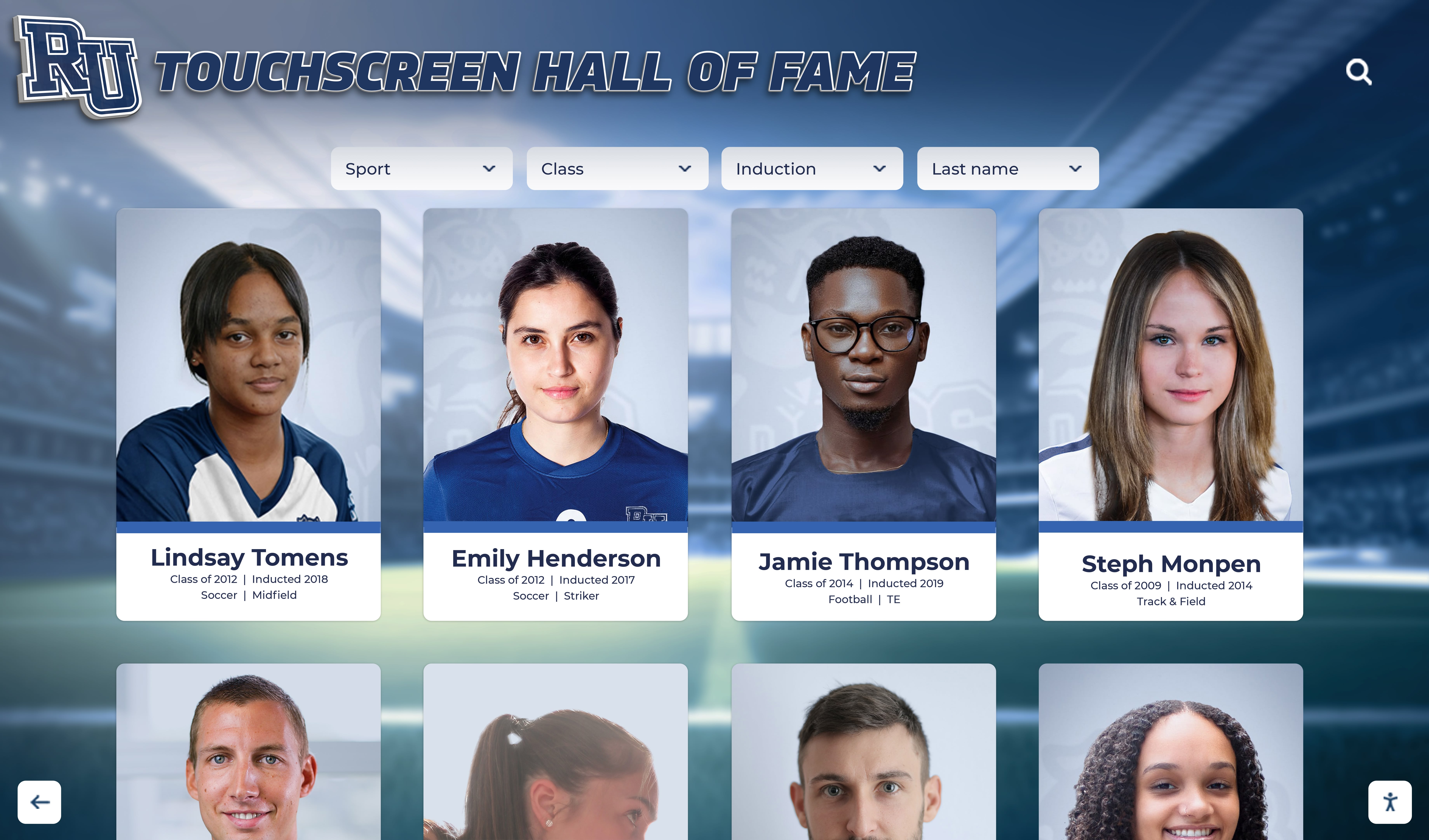Looking for your high school or college yearbook can feel like searching for a needle in a haystack. Maybe you’re planning a class reunion and need to locate classmates, researching family history and want to see relatives’ school photos, revisiting memories from your school years, or helping elderly parents find their old yearbook pages. Whatever your reason, the challenge remains the same—physical yearbooks from decades ago are often lost, damaged, stored in inaccessible locations, or sitting in archives you don’t know how to access.
The digital revolution has transformed yearbook accessibility. Schools, libraries, archives, and specialized services are systematically digitizing yearbook collections, creating searchable online databases that put decades of school memories at your fingertips. What once required campus visits, archive appointments, or expensive professional services can now often be accomplished from your living room—if you know where to look and how to search effectively.
Why Finding Digital Yearbooks Has Become Easier
The widespread digitization of yearbook collections means more school memories are accessible online than ever before. Modern digital yearbook platforms enable intuitive searching, instant access from anywhere, and preservation of historical content that might otherwise be lost. Solutions like Rocket Alumni Solutions help schools create comprehensive digital yearbook archives that alumni can access remotely, transforming how people reconnect with school memories and classmates across decades.
Understanding the Digital Yearbook Landscape
Before diving into specific search strategies, understanding the current state of digital yearbooks helps set realistic expectations and focus your search efforts effectively.
The Current State of Yearbook Digitization
Yearbook digitization progress varies dramatically based on institution type, resources, and priorities. Many universities, especially larger institutions with active alumni relations departments, have digitized significant portions of their yearbook collections dating back decades or even over a century. These schools recognize digitized yearbooks as valuable alumni engagement tools and often provide free online access through dedicated portals or digital libraries.

High schools present more varied situations. Well-funded schools in affluent communities often maintain comprehensive digital archives, while schools with limited resources may have minimal or no digitization. Private schools sometimes prioritize yearbook digitization as part of alumni engagement strategies supporting fundraising initiatives. Public schools frequently depend on district-level decisions about technology investments and historical preservation priorities.
Recent yearbooks—typically from the 1990s forward—are more commonly available digitally since many were originally created using digital tools. Yearbooks from the 1970s and earlier often exist only in physical form unless specific digitization projects have addressed them. The gap decades between roughly 1950-1990 represent the most inconsistent digitization coverage, as these yearbooks lack inherent digital files but may not receive prioritization for retrospective digitization projects.
Understanding these patterns helps focus search strategies appropriately. If you’re seeking recent yearbooks from major universities, your search will likely succeed quickly. If you’re looking for 1960s yearbooks from small rural high schools, you’ll need persistence and creative approaches.
Types of Digital Yearbook Access
Digital yearbooks appear in several formats, each with different search approaches, accessibility levels, and usage restrictions.
Fully Digitized Searchable Databases: The most sophisticated format features complete yearbook scans with Optical Character Recognition (OCR) enabling text searches across all content. Users can search for specific names, instantly finding every page where a person appears across multiple years. These systems typically include intuitive interfaces, filtering options by year or category, and capabilities for saving favorite pages or sharing discoveries. Schools implementing comprehensive digital yearbook systems provide the best user experiences and accessibility.
PDF Collections: Many institutions scan yearbooks and provide simple PDF downloads. While this approach preserves content digitally, PDFs without OCR processing offer limited searchability—users can often search text only if the yearbook was originally created digitally or if someone manually added searchable text layers. These collections typically require downloading entire yearbooks and manually browsing pages to find specific content.
Image Gallery Archives: Some schools post yearbook pages as individual image files organized by year and page number. These collections preserve visual content but offer no search functionality beyond basic file browsing. Finding specific people or content requires sequentially reviewing every relevant page.
Limited Preview Systems: Certain commercial yearbook services provide limited digital access—perhaps just the cover and a few sample pages publicly, with full access requiring purchase or subscription. These systems aim to monetize yearbook access while providing enough preview content for users to confirm they’ve found the correct edition before committing financially.
Where to Search for Digital Yearbooks
Effective yearbook searches require checking multiple potential sources systematically since no single universal yearbook database exists covering all schools and years.
Start with Your School’s Website
Begin every yearbook search at the specific school’s official website. Many schools now feature dedicated alumni sections, digital archives, or library resources linking directly to available yearbooks. Look for sections labeled Alumni Resources, Digital Collections, School Archives, Historical Materials, or Library Services. These pages often provide direct links to yearbook databases or information about accessing archived materials.
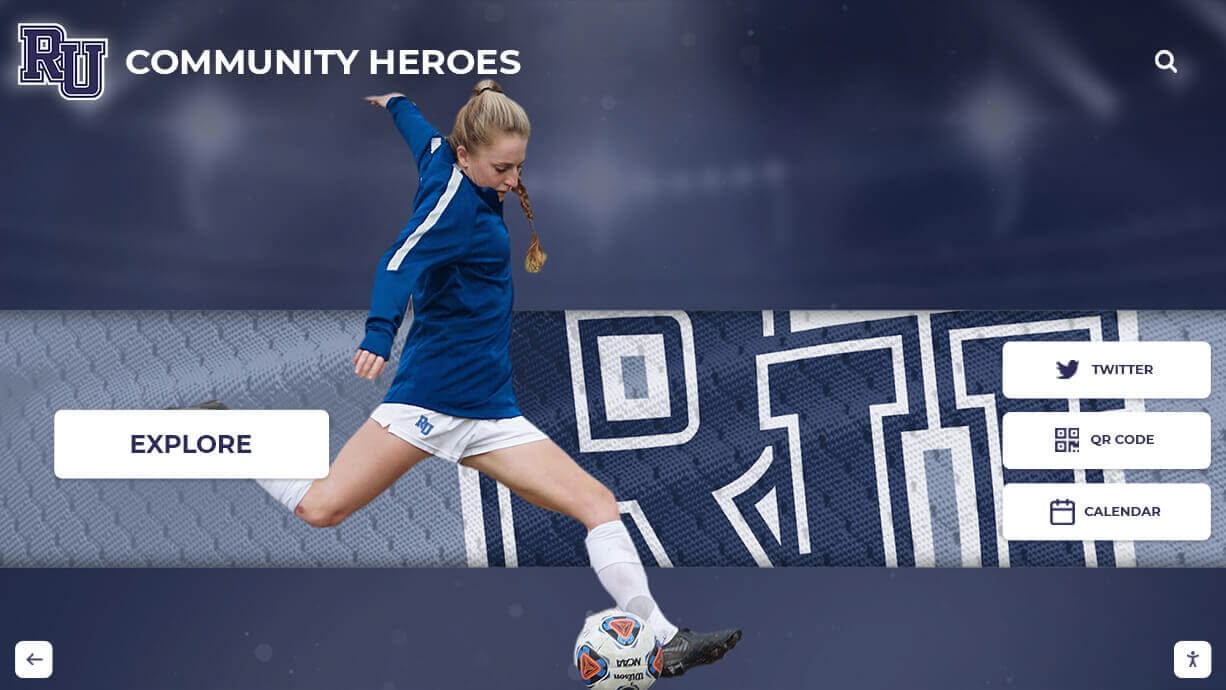
If you don’t immediately find yearbook links, use the site’s search function to query “yearbooks,” “archives,” or “digital collections.” Many schools maintain these resources but don’t prominently feature them on main navigation menus. School library pages frequently list available digital resources including yearbook collections even if they’re not highlighted elsewhere on institutional websites.
For schools that have closed, merged, or changed names, track down successor institutions’ websites. School districts often inherit archives from closed schools and may have digitized collections covering multiple former campuses. Historical societies in communities where schools operated sometimes maintain digital archives including yearbooks from schools no longer operating.
University and College Digital Libraries
Higher education institutions frequently maintain sophisticated digital library systems where yearbook collections reside alongside other institutional materials. University digital repositories often feature dedicated yearbook sections with decades of content fully digitized and searchable. These systems typically allow browsing by year, searching by name, and downloading individual pages or complete volumes.
Major universities with particularly comprehensive digital yearbook collections include state flagship universities with long histories, prestigious private institutions with well-funded archives, universities with strong archival studies programs prioritizing preservation, and schools with active alumni associations supporting digitization initiatives. Many university library websites include searchable catalogs where “yearbooks” queries return direct links to available digital collections.
The infrastructure supporting online hall of fame websites often integrates with digital yearbook collections, creating interconnected systems where yearbook photos link to alumni recognition profiles and vice versa.
Public Library Digital Collections
Public libraries, especially in communities with strong local history preservation commitments, often digitize yearbooks from area schools. These collections serve genealogical researchers, local historians, and community members seeking historical information. Library digital collections sometimes include yearbooks from schools that lack resources for their own digitization projects.
Search your community’s public library website for digital collections, local history resources, or genealogy materials. Many libraries participate in regional consortia sharing digital collections across multiple institutions, so checking your county or regional library system may reveal yearbooks beyond just your immediate community library. Libraries frequently collaborate with historical societies, creating combined digital collections housing diverse historical materials including school yearbooks.
Internet Archive and Digital History Projects
The Internet Archive (archive.org) represents one of the largest repositories of freely accessible digitized materials including substantial yearbook collections. The site’s “Yearbooks” section features thousands of volumes from schools nationwide uploaded by alumni, libraries, and preservation organizations. Search by school name, location, or year to discover available yearbooks. While coverage remains incomplete, the Internet Archive continues expanding its yearbook holdings as individuals and institutions contribute materials.

Additional digital history projects worth checking include state-specific digital library initiatives often funded by state governments or educational institutions, county and local historical society digital collections, genealogy websites hosting yearbook collections, and university special collections hosting materials beyond their own institutions’ yearbooks. These specialized repositories sometimes contain yearbooks unavailable elsewhere, making them valuable secondary search sources.
Commercial Yearbook Services
Several commercial services provide yearbook access through subscription or purchase models. These services often partner with schools and yearbook publishers to digitize collections, then monetize access through various payment structures. While requiring financial investment, commercial services sometimes offer the only available digital access to certain yearbooks, particularly from the 1970s-2000s period when yearbook publishers maintained distribution relationships with schools.
Major commercial yearbook platforms include services specializing in high school yearbook archives, college yearbook databases, and comprehensive platforms covering both secondary and higher education. These services typically offer free searching to identify whether specific yearbooks are available, with charges applying only when users want to view full yearbook content or purchase copies. Pricing models vary from one-time purchases for specific yearbooks to subscription access across entire databases.
The value proposition depends on your specific needs. If you’re conducting one-time yearbook searches, per-yearbook purchase options may suffice. Genealogists or reunion organizers needing broad access across multiple years and schools might justify subscription costs. Always check whether your desired yearbooks are available through free sources before committing to commercial services.
Alumni Association Resources
School alumni associations frequently maintain yearbook collections as member resources. Alumni association websites often feature members-only portals where authenticated alumni can access digital yearbooks, directories, and other historical materials. These member services aim to provide value justifying association membership or dues while fostering connections among alumni.
If you’re not currently associated with your school’s alumni organization, contacting them directly often yields information about accessing yearbooks. Many associations provide limited yearbook access to verified alumni even without formal membership. Alumni associations also typically know about alternative yearbook sources if they don’t maintain digital collections themselves.
Modern digital recognition platforms increasingly integrate yearbook content with comprehensive alumni databases, creating systems where yearbook searches flow seamlessly into broader institutional archives and recognition programs.
Effective Search Strategies and Techniques
Finding specific yearbooks requires systematic approaches combining multiple search methods and platforms.
Construct Effective Search Queries
Search effectiveness depends significantly on query construction. Start with the most specific information you have, then broaden if initial searches fail. Effective yearbook searches typically include the complete official school name, city and state location, and specific year or year range. For example: “Lincoln High School Des Moines Iowa yearbook 1985” targets searches much more effectively than simply “Lincoln yearbook 1985.”
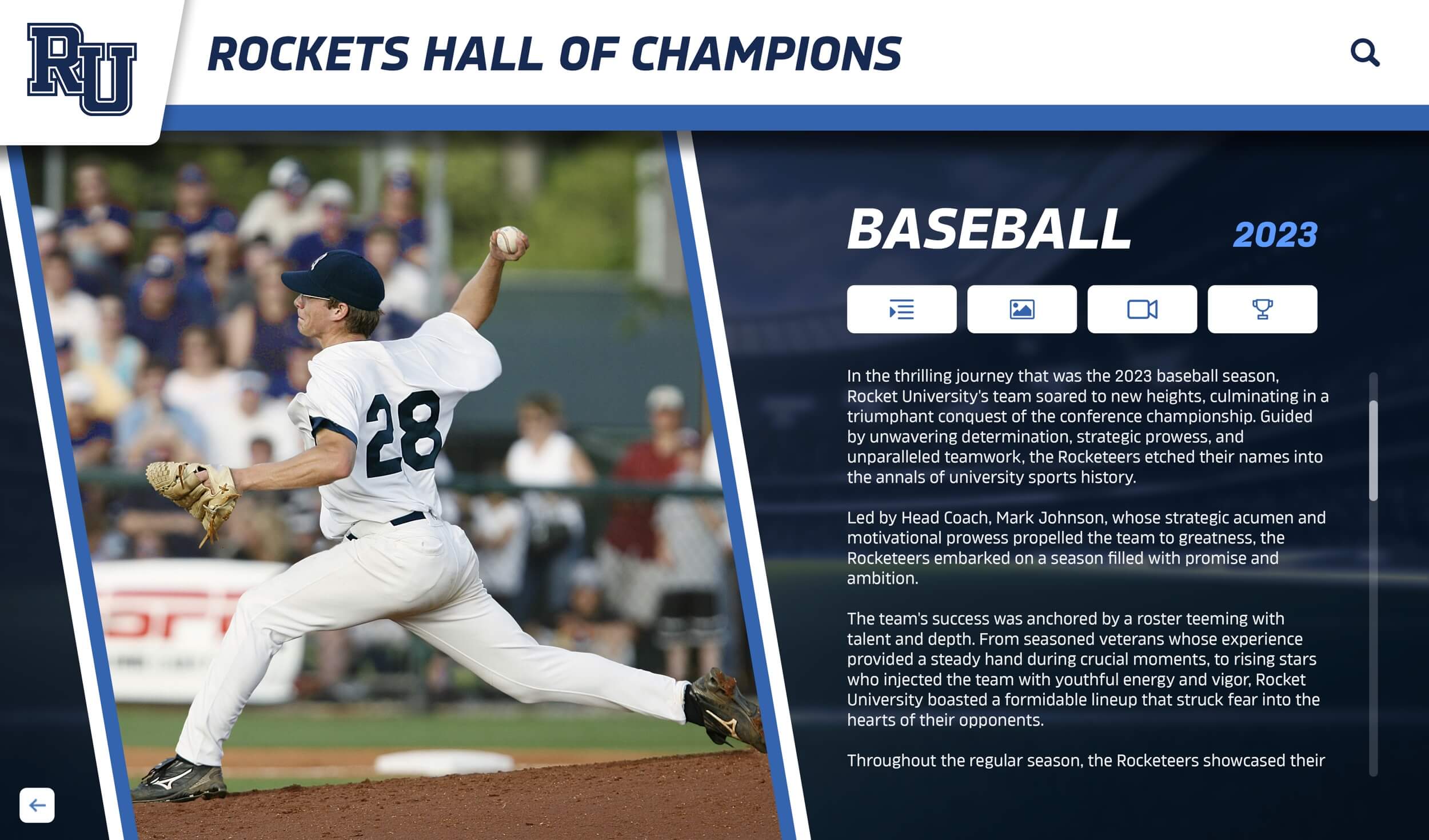
Schools with common names especially require location specificity since dozens of Lincoln, Washington, or Roosevelt schools exist nationwide. Including geographic identifiers eliminates irrelevant results dramatically. If you know the yearbook’s specific title—many schools name yearbooks distinctively—include that in searches. “The Lincolnian yearbook 1985” immediately focuses searches on Lincoln High School’s specific yearbook title rather than all publications from schools named Lincoln.
Try variations of school names since official names change over time and searchers often use common names differing from formal titles. A school officially named “Washington Preparatory High School” might commonly be called “Washington Prep” or simply “Wash High.” Searching multiple name variations increases discovery chances substantially.
Search Engines and Advanced Techniques
General search engines like Google remain surprisingly effective for finding digital yearbooks when used strategically. Search queries should specify “digital yearbook” or “online yearbook” along with school details to prioritize digital sources over physical yearbook references or yearbook company advertisements. Adding “archive” or “collection” further focuses results toward institutional repositories rather than commercial sellers.
Advanced search operators improve results significantly. Use quotation marks around specific phrases forcing exact matches: “Lincoln High School yearbook”. The site operator restricts searches to specific domains: site:archive.org “Lincoln High School yearbook” searches only within the Internet Archive. The filetype operator finds specific document types: filetype:pdf “Lincoln High School yearbook” identifies PDF yearbook files.
Combining operators creates powerful targeted searches. For example: site:edu “Lincoln High School” yearbook digital searches only educational institutions’ websites for digital Lincoln High School yearbooks. This approach surfaces university digital libraries, school district archives, and alumni association sites while excluding commercial services and unrelated content.
Leverage Social Media and Alumni Networks
Social media platforms facilitate crowdsourced yearbook searching where traditional methods fail. Alumni groups on Facebook, LinkedIn, and other platforms often include members who possess yearbooks, know about digital archives, or can suggest search strategies specific to particular schools. Posting requests in these groups frequently generates helpful responses from people with direct knowledge.
Alumni groups sometimes organize collaborative yearbook digitization projects where members with physical yearbooks volunteer to scan them for shared digital archives. Participating in or initiating such efforts creates access where none previously existed. Even if formal digital archives don’t exist, alumni networks might connect you with individuals willing to scan specific pages you need.
The connections fostered through alumni engagement platforms increasingly include yearbook sharing and memory preservation as core community-building activities.
Contact School Offices Directly
When online searches fail to locate digital yearbooks, direct contact with schools often provides solutions. School libraries, alumni relations offices, and administrative offices maintain information about yearbook archives and access methods. Even if yearbooks aren’t available online, staff can often provide guidance about on-campus access, photocopy services, or future digitization plans.
Librarians and archivists typically appreciate genuine historical interest and often go beyond basic responses to help locate materials. Explain your specific needs and your research purpose clearly. Schools receiving thoughtful inquiries about yearbook access sometimes accelerate digitization of requested years or provide special accommodations for significant research needs.
For closed schools, contact successor institutions or school districts that absorbed former schools. County education offices sometimes maintain archives for defunct schools. Local historical societies frequently preserve materials from closed schools including yearbooks, even if they’re not digitized.
Understanding Access Restrictions and Privacy
Digital yearbook accessibility involves balancing historical preservation with legitimate privacy considerations affecting what content becomes publicly available.
Why Some Yearbooks Aren’t Digitized
Many yearbooks remain unavailable digitally for practical and legal reasons rather than oversight. Budget constraints limit many schools’ ability to fund comprehensive digitization projects requiring specialized equipment, staff time, and ongoing digital infrastructure. A school with 100 years of yearbooks faces significant expenses digitizing the entire collection even at relatively low per-page costs.

Copyright concerns sometimes impede digitization, especially for yearbooks from the 1970s forward when professional photographers contributed portraits. Questions about who owns copyright to yearbook photos—schools, students, yearbook companies, or photographers—create legal uncertainties that conservative institutions avoid by limiting public digital access. Some schools digitize yearbooks but restrict access to verified alumni rather than public distribution, minimizing copyright exposure.
Privacy considerations affect digitization decisions, particularly for recent yearbooks containing current minors’ photos and information. Federal education privacy laws restrict distribution of student information, creating legitimate concerns about public yearbook access. Some institutions digitize yearbooks with decades-old content while restricting access to recent editions until sufficient time passes that privacy concerns diminish.
Physical condition sometimes prevents digitization when yearbooks have deteriorated beyond safe handling. Extremely fragile yearbooks require conservation before scanning, adding costs and complexity. Missing yearbooks from school collections obviously can’t be digitized unless alumni or other sources provide copies.
Navigating Restricted Access Systems
Many digital yearbook collections implement access restrictions requiring authentication or verification before allowing yearbook viewing. Alumni-only portals typically require proving your affiliation with specific graduation years through information verification, email addresses confirming institutional connections, or nominal membership fees supporting alumni association operations.
These verification processes serve legitimate purposes including protecting student privacy, complying with copyright interpretations, controlling access to content possibly considered sensitive, and funding ongoing digital archive maintenance through membership programs. While access restrictions add steps to yearbook discovery, they’re often negotiable for legitimate research purposes.
If you encounter restricted yearbook collections preventing access, contact institutions directly explaining your specific needs and research purposes. Many schools make exceptions for genealogical research, academic studies, or other documented legitimate purposes. Alumni associations often provide temporary access to non-members assisting with reunion planning or similar community-benefiting activities.
Alternative Methods When Digital Yearbooks Aren’t Available
When comprehensive digital access isn’t available, alternative approaches still often enable finding yearbook content or acceptable substitutes.
Request Physical Archive Access
Schools, libraries, and historical societies maintaining physical yearbook collections typically allow on-site access during regular hours. Call ahead to verify yearbook availability, hours for archive access, any appointment requirements, and policies regarding photography or photocopies. Most institutions permit visitors to photograph yearbook pages for personal use even if they don’t provide digital copies.
Visiting physical archives provides opportunities to view complete yearbook context—surrounding pages, overall design, and comprehensive content—that digital excerpts might miss. If you’re researching specific years, physical access often proves more efficient than requesting individual page scans.
Commission Professional Scanning Services
If specific yearbooks aren’t digitized but you identify physical copies in archives, professional scanning services can digitize content on your behalf. Some archives offer in-house scanning services for reasonable fees. Independent scanning services often accept projects where you arrange to have yearbooks temporarily sent to them for digitization, then returned to owners or institutions.

This approach works particularly well when multiple people need access to the same yearbook. Class reunion committees sometimes pool resources to professionally scan entire yearbooks, then share digital copies among classmates. The per-person cost becomes minimal when divided across 50-100 classmates who all benefit from access.
Connect with Classmates and Alumni
Fellow alumni often possess physical yearbooks or know about access sources you haven’t discovered. Reunion planning inherently involves connecting with former classmates, many of whom kept their yearbooks decades after graduation. Even if you no longer have contact information for classmates, social media makes reconnecting easier than ever.
Alumni association membership directories, social media alumni groups, and class-specific Facebook pages create venues for locating classmates who might share yearbook access. Often someone in your class has already scanned yearbook pages for personal reasons and willingly shares digital files with fellow alumni.
The community-building aspects of interactive alumni recognition displays demonstrate how digital platforms facilitate connections among alumni across generations, often including shared yearbook content and memories.
Explore Yearbook Company Archives
Yearbook publishers historically maintained archive copies of yearbooks they produced. While most companies don’t offer public digital access to these archives, they sometimes provide reprints or digital copies for fees. If you know which company published a specific yearbook, contacting them directly might reveal available options.
Major yearbook publishers have acquired numerous smaller competitors over decades, consolidating archives. If the original publisher of your yearbook no longer operates independently, research which current company acquired them and contact that successor organization about archive access.
Maximizing Success in Finding Specific People
Many yearbook searches ultimately aim to find specific individuals—yourself, classmates, relatives, or people of research interest. Targeted strategies increase success in locating specific people within yearbooks.
Understanding Yearbook Organization
Yearbooks follow fairly standard organizational patterns that guide efficient searching. Senior class sections typically appear first or prominently, featuring individual portraits, names, and sometimes brief biographical information or quotes. Underclass sections show younger students, often in smaller photos or group formats rather than full individual portraits.
Activity and club sections document extracurricular participation with group photos and rosters. Sports sections showcase team photos and sometimes individual athlete highlights. Faculty and staff sections show educators and school employees. Special events sections document activities like homecoming, dances, and assemblies. Understanding this consistent structure helps navigate yearbooks efficiently even without indexes.
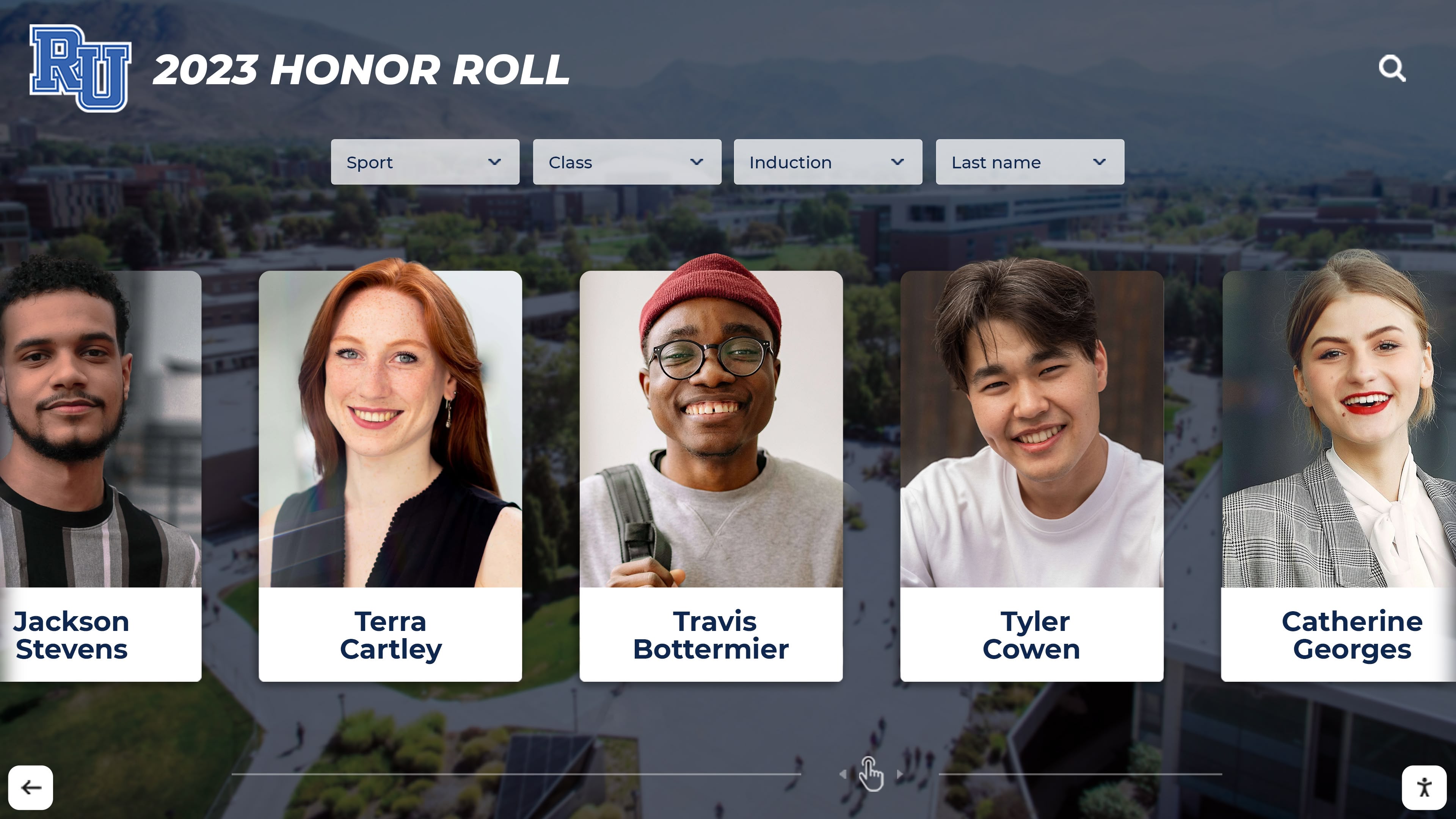
Some yearbooks include alphabetical indexes listing every student appearance by page number—tremendously helpful for quickly locating individuals. Digital yearbooks with OCR searchability essentially create automatic indexes, enabling name searches that instantly identify all relevant pages.
Dealing with Name Variations
People appear in yearbooks under various names creating search challenges. Women who later married appear under maiden names exclusively in yearbooks from their school years. Nicknames might appear instead of formal names—“Bob” rather than “Robert” or “Liz” instead of “Elizabeth.” Some individuals used middle names or different name orders than they currently use.
When searching for specific people, try multiple name variations. Check both common nicknames and formal names. Consider maiden names for women, particularly in older yearbooks from eras when women nearly universally changed surnames upon marriage. If you’re researching relatives, ask family members what names they used during school years, as these might differ from current names.
Cross-Referencing Multiple Years
People typically appear in multiple consecutive yearbooks across their school years, not just graduation year editions. If you can’t locate someone in expected graduation year yearbooks, check surrounding years. Students who moved, transferred schools, or graduated early or late might appear in unexpected years.
Underclassman years often show people in different contexts than senior portraits—club photos, sports teams, or candid shots providing different visual information. Viewing someone across multiple yearbook years provides richer understanding of their school experience than single-year snapshots.
The comprehensive approaches to finding yearbook memories demonstrate how systematic cross-year searching reveals complete school narratives rather than isolated moments.
Special Considerations for Different Types of Schools
Search strategies vary somewhat based on institution type, size, and historical period.
Large vs. Small Schools
Large schools with thousands of students per year often maintain more robust digital archives than small schools, benefiting from greater resources and alumni populations. However, large school yearbooks present challenges when searching for specific individuals among hundreds of pages and thousands of faces. Strong search functionality and yearbook indexes become essential rather than merely helpful.
Small schools sometimes lack digital archives due to limited resources, but their compact yearbooks make manual browsing more feasible. A 50-person graduating class appears in far fewer pages than a 500-person class, making page-by-page review practical if search functionality doesn’t exist. Small schools often have tight-knit alumni communities where personal connections facilitate locating yearbook access.
Private vs. Public Schools
Private schools sometimes prioritize yearbook digitization as alumni engagement tools supporting fundraising and community building. Private school alumni associations often command resources enabling comprehensive digital archives. However, private schools might restrict digital yearbook access to verified alumni or association members more frequently than public institutions.
Public schools vary widely in digitization based on district resources, state funding, and local priorities. Well-funded suburban districts often maintain sophisticated archives, while rural or underfunded districts might have minimal digitization. State-level digital initiatives sometimes fill gaps by funding digitization projects across multiple districts.
Historical Schools and Closed Institutions
Yearbooks from schools that closed decades ago present unique challenges and opportunities. Successor institutions might maintain archives, or materials might have dispersed to historical societies, libraries, or private collections. These yearbooks often have significant historical value beyond individual memory, attracting preservation efforts from local history organizations.
Community connections often prove crucial for finding closed school yearbooks. Long-time area residents, historical society volunteers, and local librarians frequently know where materials ended up. Local history forums and genealogy groups sometimes include members with knowledge about accessing closed school archives.
Creating Your Own Digital Access
When you locate physical yearbooks but digital versions don’t exist, creating personal digital copies serves both immediate needs and potentially broader community benefit.
Personal Yearbook Digitization
Modern smartphones capture sufficiently high-quality images for personal yearbook digitization. Photograph each page systematically, ensuring adequate lighting, flat positioning minimizing distortion, and sufficient resolution for reading text clearly. Organize photos by page number facilitating easy reference.

For better results than phone cameras, consumer flatbed scanners produce excellent yearbook digitization at modest costs. Scan at 300 DPI or higher to ensure text remains readable and photos show clear detail. Save scans as PDFs organized by yearbook year for convenient reference. The comprehensive guide to digitizing yearbooks provides detailed technical guidance for quality results.
Sharing with Alumni Communities
After creating personal digital yearbook copies, consider sharing with fellow alumni. Many alumni would appreciate access but lack resources or knowledge to digitize yearbooks themselves. Shared digital archives benefit entire graduating classes while distributing effort across multiple people.
Before publicly sharing digitized yearbooks, verify you’re not violating copyrights or institutional policies. Personal use digitization typically falls under fair use, but broad public distribution might raise concerns. Sharing within restricted alumni groups generally poses fewer issues than completely public posting, balancing access with appropriate limitations.
Contributing to Institutional Archives
Schools, libraries, and historical societies often welcome yearbook donations or digitization contributions. If you’ve digitized yearbooks not in institutional archives, offering to share your work helps preserve history while expanding community access. Many institutions accept digital donations of materials they don’t have resources to digitize themselves.
Contact archival organizations before submitting digital files to understand their preferred formats and metadata. Providing appropriate documentation—what yearbooks you digitized, scanning resolution, file formats—helps archivists incorporate materials into collections properly. Your digitization effort might benefit researchers, historians, and alumni for generations.
Future of Yearbook Access
Yearbook digitization and access continue evolving as technology advances and institutions recognize digital archives’ value.
Expanding Digitization Initiatives
More schools launch yearbook digitization projects annually as costs decrease, awareness grows, and alumni populations increasingly expect digital access. Collaborative regional initiatives sometimes pool resources across multiple schools, districts, or communities, making comprehensive digitization feasible for institutions lacking individual capacity.
Crowdsourcing and volunteer-driven projects increasingly supplement institutional efforts. Alumni associations coordinate member volunteers to scan yearbooks, process images, and create metadata. Student projects sometimes contribute to digitization efforts, combining community service with hands-on experience in archival work and digital asset management.
The systematic approaches described in guides about best platforms for building virtual halls of fame increasingly incorporate yearbook content, creating integrated systems where historical documents connect seamlessly with recognition programs and alumni engagement initiatives.
Emerging Technologies
Artificial intelligence promises to revolutionize yearbook digitization and searchability. Facial recognition technology could automatically identify and tag individuals across multiple yearbook years, enabling searches like “find all photos containing this person” across decades of content. Handwriting recognition might transcribe personal inscriptions and yearbook messages, currently inaccessible to standard OCR processing.
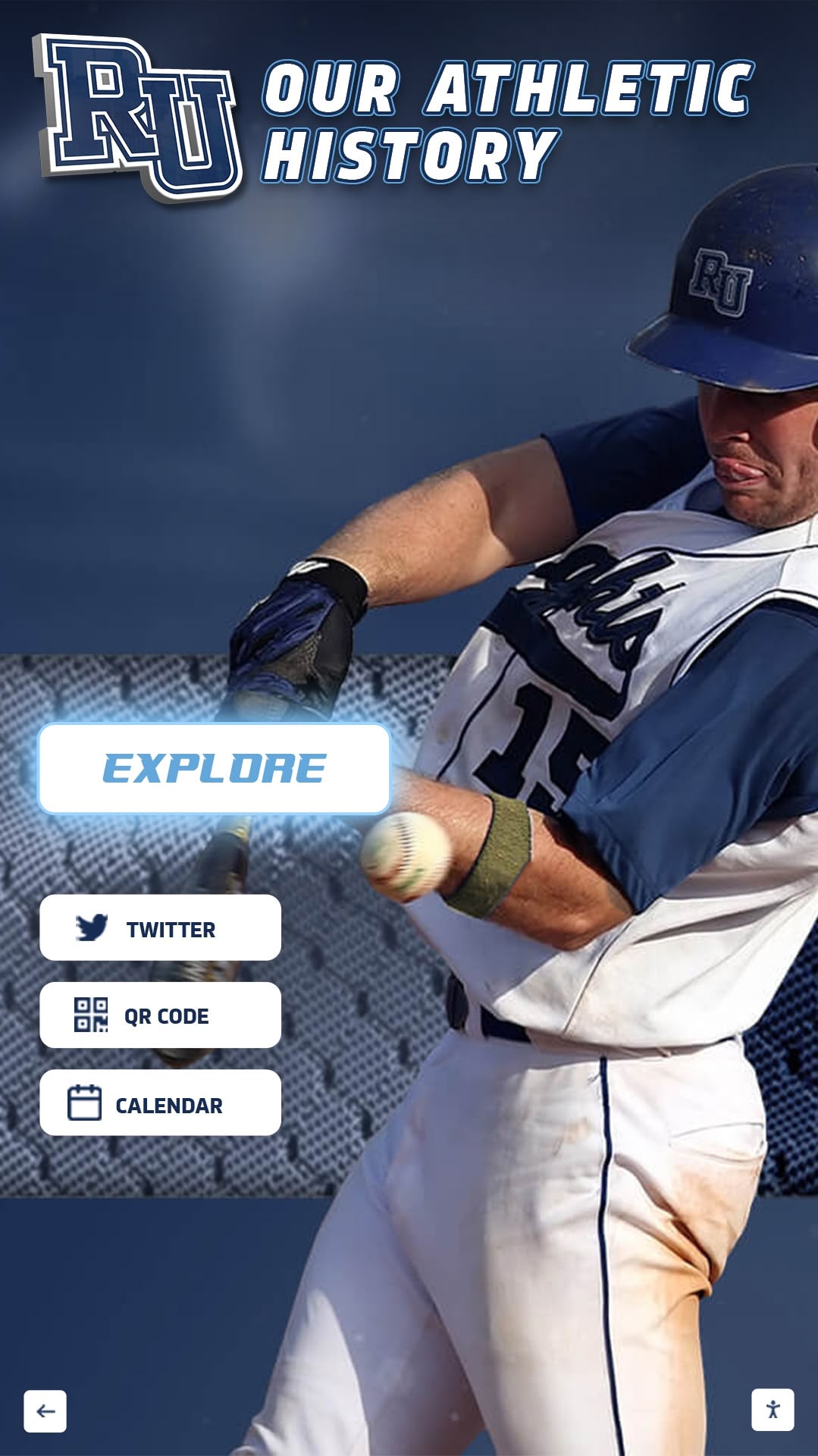
Enhanced OCR for historical documents continues improving, better handling aged paper, faded text, and vintage printing techniques that challenge current technology. Machine learning systems train on millions of yearbook pages, improving accuracy in recognizing names, dates, and content structure.
Mobile apps increasingly provide intuitive yearbook access optimized for smartphones and tablets rather than desktop computers. Location-aware features might automatically suggest nearby schools’ yearbook collections when users visit campuses. Augmented reality applications could overlay digital yearbook content on physical locations, connecting historical images with present-day spaces.
Privacy and Ethical Considerations
As yearbook digitization expands, ongoing conversations address privacy, consent, and ethical use of historical images. Balancing historical preservation with individual privacy rights requires thoughtful policies. Some advocate for broad public access to historical materials, while others emphasize individuals’ rights to control their images regardless of age.
Progressive institutions develop nuanced policies addressing these tensions—perhaps providing broad access to yearbooks more than 50 years old while restricting recent editions, enabling individuals to request removal of their images from public digital archives, or implementing graduated access tiers based on user verification levels. These evolving approaches attempt balancing legitimate historical preservation interests with respect for personal privacy preferences.
Resources and Tools for Yearbook Searching
Specific resources facilitate effective yearbook searching across various platforms and archives.
Essential Search Resources
Begin with these foundational resources when searching for digital yearbooks:
Internet Archive Yearbook Collection (archive.org/details/yearbooks): Searchable database of thousands of digitized yearbooks from schools nationwide, freely accessible without registration.
State Digital Library Networks: Many states maintain collaborative digital libraries aggregating content from multiple institutions including yearbooks. Search for “[your state] digital library” to find relevant collections.
FamilySearch Yearbook Collection: The genealogy platform maintains significant yearbook holdings useful for family history research, freely accessible with registration.
Local Public Library Catalogs: Search your community library’s online catalog for “yearbooks” to discover local holdings, both physical and digital.
Professional Research Services
When personal searching proves unsuccessful, professional researchers specialize in locating historical documents including yearbooks. Genealogists regularly research yearbooks as part of family history documentation. Local historians and archive specialists often know about obscure collections and access methods beyond public knowledge.
Professional services involve costs but potentially save time and access materials you can’t reach independently. Research fees vary widely based on project scope and material accessibility. Some professionals charge hourly rates while others offer project-based pricing for defined deliverables like locating and digitizing specific yearbook pages.
Conclusion: Persistence Pays in Yearbook Searching
Finding digital yearbooks requires patience, creativity, and systematic searching across multiple potential sources. No single database contains every yearbook, and availability varies dramatically based on school resources, historical period, and prior digitization efforts. However, more yearbooks become accessible digitally each year as institutions recognize their value for alumni engagement, historical preservation, and community connection.
Start searches with most likely sources—your school’s website, university digital libraries, and major archives like the Internet Archive. When initial searches fail, expand to alternative sources including public libraries, historical societies, commercial services, and alumni networks. Direct contact with schools and archives often reveals access options not publicly advertised online.
When digital access doesn’t exist, consider alternatives including visiting physical archives, commissioning scanning services, connecting with classmates who possess yearbooks, or creating personal digitized copies. Your digitization efforts might benefit not just yourself but entire alumni communities when shared appropriately.
Modern digital platforms like Rocket Alumni Solutions are transforming how schools preserve and share yearbooks, creating searchable databases that integrate with comprehensive interactive recognition displays throughout campuses. These systems ensure yearbook content remains accessible to alumni regardless of geographic location while supporting ongoing community engagement.
The memories captured in yearbooks—faces of classmates, documentation of achievements, records of traditions and events—represent irreplaceable historical records worthy of preservation and access. Every search effort contributes to keeping these memories alive, whether you’re reconnecting with your own school experiences, researching family history, planning reunions, or simply satisfying curiosity about the past.
With persistence and strategic searching, you can likely find the yearbooks you seek or at least discover enough content to meet your research needs. The expanding universe of digital archives makes more school memories accessible than ever before, connecting generations of alumni with the institutions and classmates who shaped their lives. Start your search today and rediscover the memories waiting in digital yearbook archives.
Ready to explore digital yearbook collections? Use these strategies to systematically search for the yearbooks you need, preserving access to school memories that deserve to remain visible and valued for generations to come.
